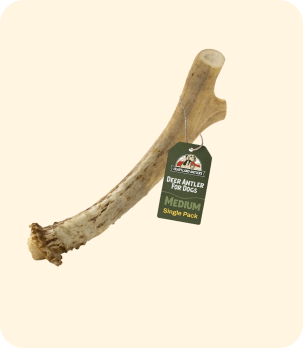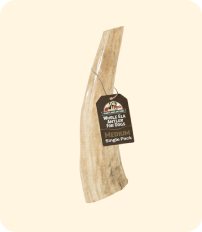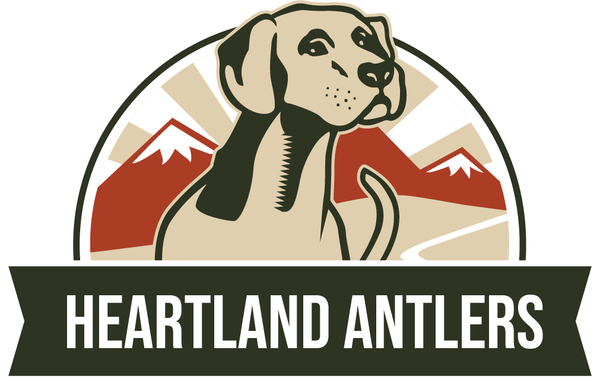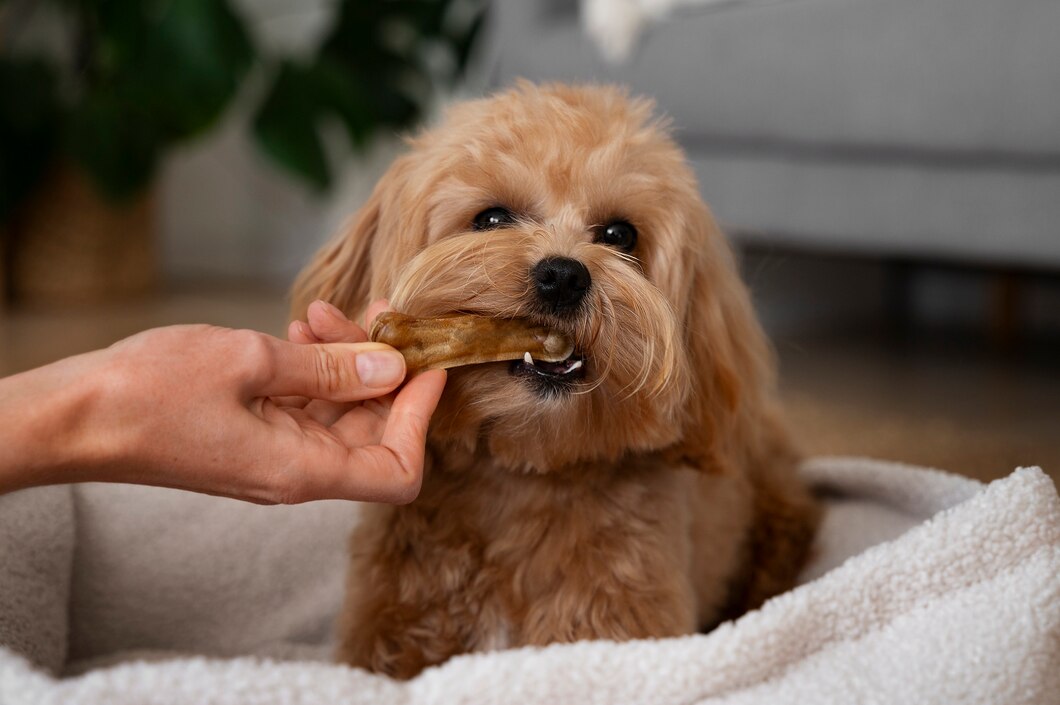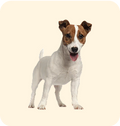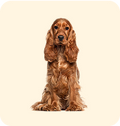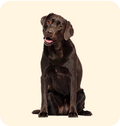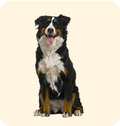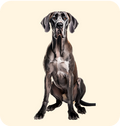As a dog owner, watching your puppy go through teething can be both adorable and challenging. During this phase, puppies often chew on anything they can find to relieve the discomfort and pressure in their gums. Providing them with the right chewing options is crucial for their dental health and overall well-being. One popular choice among pet owners is antler chews, which are naturally shed and offer a durable, eco-friendly alternative to synthetic chew toys.
In this article, we'll explore the potential benefits and precautions of giving antler chews for teething puppies, helping you decide if they are the right safe chews for puppies and a suitable natural teething remedy.
Introduction to Teething Puppies

Teething is a natural process that puppies go through as their baby teeth start to fall out and permanent teeth begin to erupt. This usually occurs between three to six months of age. During this time, puppies experience discomfort and pain, which leads them to chew on various objects to find relief. It's essential to provide them with appropriate chewing options to prevent damage to furniture and other household items while supporting their dental health.
Importance of Natural Chews
Natural chews like antlers are preferred over synthetic options for several reasons. They are less likely to contain harmful chemicals and are more durable, providing longer-lasting chewing satisfaction. Additionally, natural chews often mimic the texture and hardness of bones, which can help strengthen jaw muscles and support dental health.
Benefits of Antler Chews for Teething Puppies

Antler chews have gained popularity due to their numerous benefits for teething puppies.
Pain Relief
Antler chews are particularly effective at soothing sore gums during teething. The hard texture allows puppies to apply pressure, which can help alleviate pain and discomfort. This natural pain relief is a significant advantage over other chew toys that may not provide the same level of comfort.
Dental Health
Chewing on antlers helps reduce plaque and tartar buildup, promoting healthier teeth and gums. The abrasive action of chewing can also help remove loose baby teeth, making way for the permanent ones to come in properly.
Mental Stimulation
Providing antler chews offers mental stimulation and can prevent boredom. Puppies need to engage their minds and bodies, and antlers provide an activity that keeps them occupied and satisfied.
Nutritional Value
Antlers contain minerals like calcium and phosphorus, which are beneficial for bone health. While these nutrients are not absorbed in significant amounts, they contribute to the overall nutritional profile of the chew.
Durability
One of the most appealing aspects of antler chews is their durability. They last much longer than many other chew toys, making them a cost-effective option for pet owners.
Precautions and Safety Considerations

While antler chews are generally safe, there are some precautions to consider.
Digestibility
Antlers are non-toxic but not fully digestible. If large pieces are swallowed, they can pose a risk. It's crucial to monitor your puppy's chewing and ensure they are not breaking off large chunks.
Supervision
Always supervise your puppy when introducing antler chews. This ensures that they are chewing safely and not trying to swallow large pieces.
Size Selection
Choosing the right size of antler chew is vital. Smaller antlers are suitable for smaller puppies, while larger ones are better for bigger dogs. Ensure the antler is large enough that your puppy cannot swallow it whole but small enough to comfortably chew on.
Chew Wear and Tear
Regularly inspect the antler chew for signs of wear and tear. If it becomes too small or develops sharp edges, it's time to replace it to prevent accidents.
Choosing the Right Antler Chews
Selecting the right antler chews can make a significant difference in your puppy's chewing experience.
Source
Opt for high-quality, naturally shed antlers from reputable sources. This ensures that the antlers are free from chemicals and are sustainably sourced.
Size and Type
Choose antlers that match your puppy's size and chewing style. For aggressive chewers, harder antlers like elk may be more suitable, while gentler chewers might prefer softer deer antlers.
Quality Check
Before giving an antler chew to your puppy, inspect it for cracks or shards. Any damaged areas can be hazardous, so it's best to start with a smooth, intact antler.
Alternatives to Antler Chews

While antler chews are an excellent option, some pet owners might prefer alternatives.
Bully Sticks
Bully sticks are fully digestible and can be a good alternative for those concerned about the digestibility of antlers. They are made from natural beef and provide a similar chewing experience.
Rawhide Alternatives
For those who prefer plant-based options, alternatives like sweet potato chews or carrot sticks can be a good choice. These are softer and more easily digestible than antlers.
Other Natural Chews
Other eco-friendly chew toys like West Paw Designs offer a variety of textures and materials that can mimic the chewing experience of antlers without the potential risks.
Conclusion and Recommendations
Antler chews can be a safe and natural soother for teething puppies when used correctly. They offer numerous benefits, including pain relief, support for dental health, and mental stimulation. However, it's essential to follow the precautions outlined above to ensure your puppy's safety.
If you're considering antler chews for your teething puppy, explore our collection of naturally shed deer and elk antler chews at www.heartlandantlers.com. Our antlers are sustainably sourced and carefully selected to provide the best chewing experience for your puppy.
Explore our collection of naturally shed deer and elk antler chews at www.heartlandantlers.com to find the perfect, safe chew for your teething puppy.
